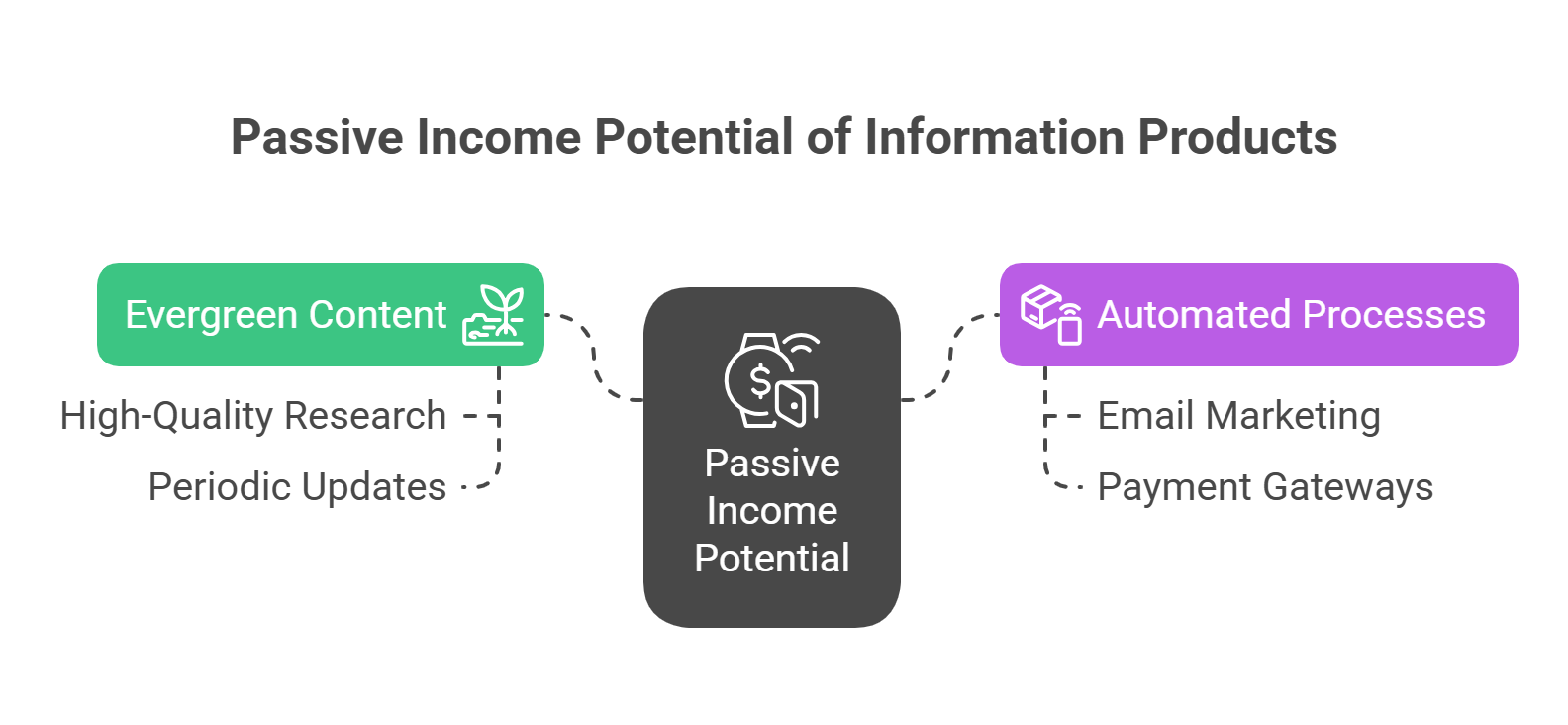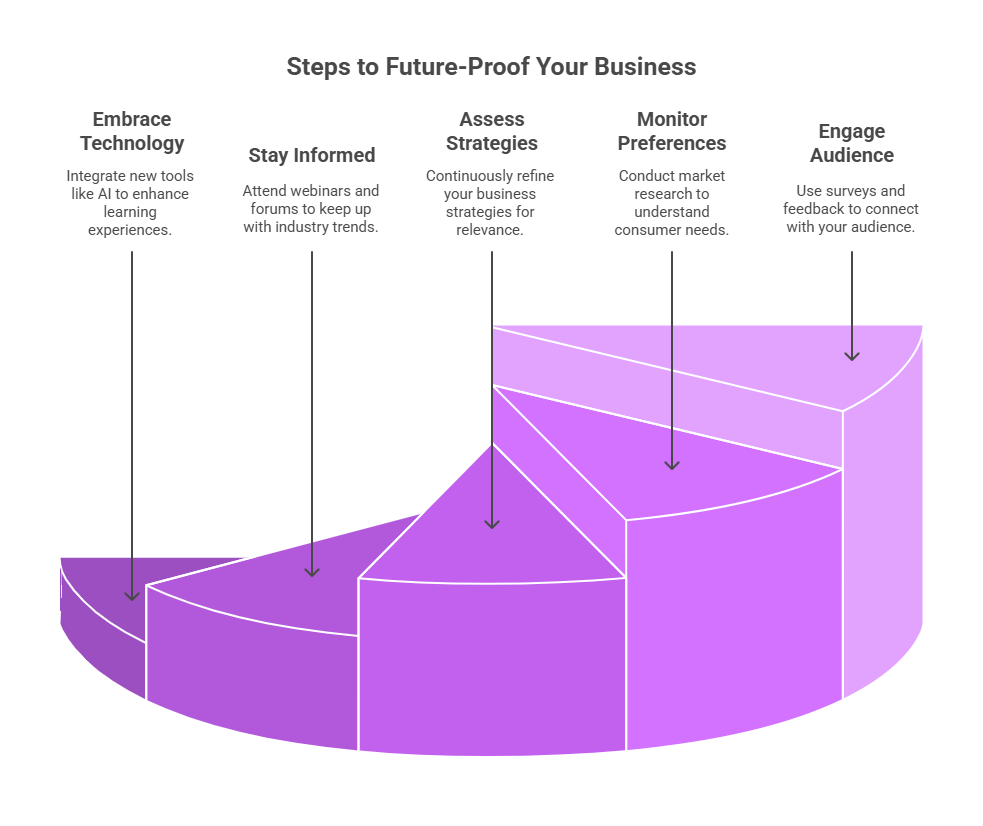Contents
- 1 Statistics on the Rise of Information Marketing
- 2 1. Consumer Behavior Shift towards Knowledge-based Products
- 3 2. Low Entry Barrier and Cost-Efficiency
- 4 3. Flexibility and Scalability of Information Products
- 5 4. Establishing Authority and Building Credibility
- 6 5. Passive Income Potential
- 7 6. Diversification of Income Streams
- 8 7. Access to Valuable Customer Data
- 9 8. Global Reach and Impact
- 10 9. Fulfillment and Satisfaction from Helping Others
- 11 10. Future-Proofing Your Business
Statistics on the Rise of Information Marketing
The trend towards information products is undeniable. Recent studies show that the information marketing industry is projected to grow significantly, with revenues expected to soar into the billions over the next few years. For instance, the global e-learning market alone is estimated to reach $375 billion by 2026. This surge is not just driven by large corporations; small entrepreneurs are jumping on the bandwagon as well.
- 85% of people prefer to learn through visual content.
- Over 70% of consumers indicate they have purchased an information product in the past year.
1. Consumer Behavior Shift towards Knowledge-based Products
This shift indicates a fundamental change in consumer behavior. People are increasingly seeking knowledge-based products to enhance their skills or solve specific problems. Consider the rise of online courses on platforms like Udemy and Coursera. Individuals are willing to invest in things that promise personal and professional growth.
- 82% of learners feel that lifelong learning is essential for career success.
- 68% of consumers prefer to acquire information through self-paced formats.
This trend reveals that individuals value the flexibility and accessibility that information products offer, making it a perfect time for marketers and creators to dive into this thriving sector.
2. Low Entry Barrier and Cost-Efficiency
Minimal Startup Costs
Building an information product doesn’t have to break the bank. In fact, many successful entrepreneurs started with little more than a computer and a clear idea. With tools available online, the barrier to entry is incredibly low. For example, hosting a webinar can be done with free or affordable platforms like Zoom and Canva.
- Basic website creation can cost as little as $10/month.
- Digital products like eBooks or online courses require minimal upfront investment.
Reach a Global Audience at Low Expenses
Additionally, the digital nature of information products allows creators to reach a global audience without hefty shipping fees. Imagine crafting a course that people from different countries access simultaneously!
- Social media platforms can be utilized for free to market products.
- Email marketing offers a cost-effective way to maintain relationships with customers.
This cost-efficiency not only makes it easier for creators to enter the market but also allows them to focus on delivering valuable content without financial strain. The result? A vibrant community of learners eager to engage with knowledge-based products.
3. Flexibility and Scalability of Information Products
Customization Options for Various Niches
One of the greatest advantages of information products is their inherent flexibility. Whether your passion lies in health, finance, or digital marketing, you can easily tailor your offerings to meet specific audience needs. For instance, a nutritionist can create specialized meal plans for different dietary restrictions, thereby reaching diverse customer bases.
- Offer mini-courses: Focused on niche topics such as vegan cooking or intermittent fasting.
- Develop personalized coaching sessions: Cater to individual learning preferences.
Scaling Business without Physical Inventory
Moreover, scalability is a key feature of information products. Since these products are primarily digital, you can scale your business effortlessly without the constraints of physical inventory. For example, once an online course is created, it can be sold repeatedly without any additional production costs.
- Automated sales funnels can facilitate the entire purchasing process.
- Digital platforms enable simultaneous access to thousands of users worldwide.
The result is a sustainable model where businesses can expand rapidly while minimizing overhead costs. In essence, the flexibility and scalability of information products not only empower creators but also allow them to adapt to changing market demands seamlessly.
4. Establishing Authority and Building Credibility
Positioning Yourself as an Expert in Your Field
When authors and creators put forth information products, they inherently position themselves as experts. Sharing knowledge through articles, courses, or webinars not only showcases your expertise but also draws in an audience seeking your guidance. For instance, a financial advisor offering free webinars on budgeting strategies can effectively position themselves as a go-to resource for financial literacy.
- Create valuable content consistently to reinforce expertise.
- Engage with your audience through Q&A sessions to demonstrate your knowledge.
Fostering Trust with Information Products
Trust is crucial in today’s digital marketplace. By delivering high-quality information products, you foster a relationship built on reliability and value. For instance, after completing a course, learners can provide testimonials that act as powerful social proof.
- Encourage feedback and actively implement it to improve products.
- Build a community around your knowledge by facilitating discussion groups.
By focusing on establishing authority and building credibility, creators can cultivate a loyal following that not only values their expertise but also turns to them for solutions and guidance. This foundation ultimately leads to increased sales and a solid reputation in the market.
5. Passive Income Potential
Creating Evergreen Content for Continuous Revenue
One of the most enticing prospects of information products is their capacity to generate passive income. By creating evergreen content—assets that remain relevant over time—you establish a revenue stream that can earn money long after you’ve done the initial work. For example, crafting a comprehensive eBook on digital marketing strategies can continue to generate sales as new readers seek knowledge in this ever-evolving field.
- Invest time in high-quality research to ensure lasting value.
- Update content periodically to maintain relevance and attract new customers.
Automating Sales and Delivery Processes
Moreover, automating sales and delivery processes can turn your business into a well-oiled machine. By utilizing platforms like Shopify or Teachable, you can handle everything from transaction processing to product delivery with minimal effort.
- Set up automated email marketing to nurture leads and encourage repeat purchases.
- Integrate payment gateways to streamline transactions without manual intervention.
In essence, passive income through information products allows creators to enjoy financial freedom and the ability to focus on developing new ideas, securing a sustainable future in the digital marketplace.

6. Diversification of Income Streams
Creating Multiple Products for Varied Revenue Sources
Diversifying income streams is a smart strategy for information product creators. By developing multiple products—such as eBooks, online courses, webinars, and membership sites—you can tap into different markets and cater to various customer preferences. This approach not only maximizes earning potential but also reduces reliance on a single revenue source.
- Conduct audience research to identify new product ideas.
- Bundle various offerings to increase perceived value and encourage cross-selling.
Hedging against Market Fluctuations
Additionally, diversification serves as a hedge against market fluctuations. When one product experiences a decline in demand, others can compensate for potential losses. For instance, if an online course sees reduced enrollment, the sales from a popular eBook or a newly launched webinar can help stabilize income flow.
- Stay updated on industry trends to pivot quickly when necessary.
- Analyze performance metrics regularly to identify strengths and weaknesses.
By diversifying their offerings, creators can build a more resilient business model that stands strong against market variability while continually meeting their audience’s needs.
7. Access to Valuable Customer Data
Leveraging Analytics for Targeted Marketing
Access to valuable customer data is a game changer for creators of information products. By leveraging analytics tools, businesses can gain insights into customer behavior, preferences, and demographics. For instance, platforms like Google Analytics can help identify which products are trending and where your traffic is coming from.
- Track engagement metrics to refine marketing strategies.
- Conduct A/B testing to determine which promotional tactics resonate most with your audience.
Understanding Customer Preferences for Product Development
Furthermore, understanding customer preferences enables more informed product development. By analyzing feedback from surveys or reviews, creators can tailor their offerings to better meet the needs of their audience.
- Create customer personas based on data to map out specific interests.
- Iterate on existing products using customer suggestions to enhance value.
This data-driven approach not only boosts the relevance of your products but also fosters a stronger connection with customers, ultimately driving sales and satisfaction. Building a responsive business rooted in customer insights ensures long-term success and strengthens brand loyalty in a competitive marketplace.
8. Global Reach and Impact
Expanding Market Reach beyond Geographic Boundaries
The beauty of information products lies in their ability to transcend geographic boundaries. With a digital platform, creators can reach customers all over the world, dramatically expanding their market reach. Imagine offering an online course that attracts learners from different countries—this not only increases sales but also enriches the learning experience through diverse perspectives.
- Utilize platforms like Udemy or Skillshare to tap into global audiences effortlessly.
- Translate content into multiple languages to cater to non-English speaking markets.
Empowering Others through Knowledge Sharing
Equally important is the impact of knowledge sharing. By providing valuable information, creators empower others to enhance their skills and challenges. For example, an entrepreneur teaching online marketing strategies is not just selling a course; they are equipping individuals and businesses with tools to succeed.
- Foster a community around your content, encouraging discussions and collaborations.
- Showcase student success stories to inspire others and highlight the effectiveness of your products.
This global reach and the ability to impact lives through knowledge contribute to a fulfilling business journey, allowing creators to make a difference while building a sustainable income. Ultimately, the potential for positive change is as limitless as the audience itself.
9. Fulfillment and Satisfaction from Helping Others
Impacting Lives with Valuable Information
One of the most rewarding aspects of creating information products is the profound impact they can have on people’s lives. When someone applies the knowledge gained from your product and achieves their goals, it brings an unparalleled sense of fulfillment. For instance, a personal finance course that empowers users to save for their first home is not just about the money—it’s about changing lives and creating future opportunities.
- Create actionable strategies that lead to tangible results.
- Encourage learners to share their experiences to foster a sense of community.
Success Stories and Testimonials
Collecting success stories and testimonials serves as both validation and motivation. Hearing how your content has inspired someone to embark on a new career path or improve their health can be incredibly uplifting. These stories not only showcase the effectiveness of your products but also help establish credibility.
- Feature testimonials prominently on your sales page to attract new customers.
- Create a dedicated section for success stories on your website, highlighting the transformative journeys of your learners.
Ultimately, the impact of information products extends beyond mere sales; it builds a legacy of empowerment and growth. This cycle of helping others and witnessing their success provides deep satisfaction to creators, reinforcing their commitment to producing valuable content.
10. Future-Proofing Your Business
Adapting to Technological Advancements for Sustainable Growth
In a rapidly evolving digital landscape, future-proofing your business is essential for long-term success. Embracing technological advancements ensures that your information products are not only relevant but also competitive. For instance, integrating emerging tools like artificial intelligence can enhance personalized learning experiences for your audience.
- Leverage new software for streamlined content creation and delivery.
- Stay informed about industry trends through webinars and online forums to remain agile.
Staying Ahead in the Digital Economy
Moreover, staying ahead in the digital economy involves continuously assessing and refining your strategies. It’s crucial to monitor consumer preferences and adapt your offerings accordingly.
- Conduct regular market research to identify shifts in demand.
- Engage with your audience through surveys and feedback forms to better understand their needs.

By committing to adaptability and innovation, businesses can secure their place in an ever-changing market. Future-proofing not only protects your venture but also unlocks new opportunities for growth, ensuring that you remain a relevant leader in the information product space. Ultimately, being proactive today sets the foundation for enduring success tomorrow.








